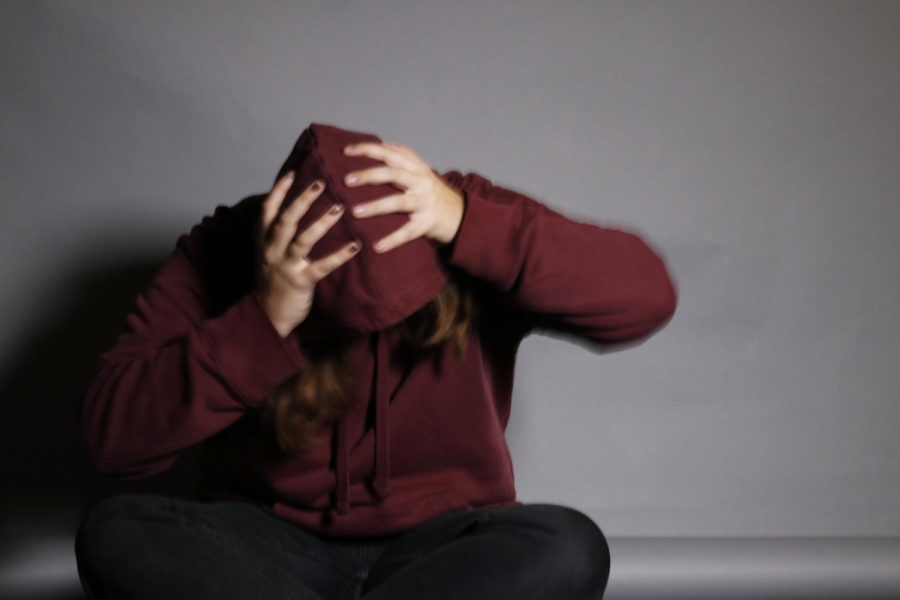Editorial: Seasonal depression and end of daylight saving time clash
Photo Illustration by Katlyn Campbell
Seasonal affective disorder can lead to typical depression symptoms such as a lack of energy, appetite loss or weight gain, fatigue and difficulty concentrating.
October 31, 2019
It’s that time of year again where the days begin to grow colder as the hours tend to pass us by. The sun starts to hide itself behind the clouds and only in rare occasions does it shine.
Our moods begin to shift more the quicker it gets dark out, and it is such feelings that tend to seep into our minds and souls as the days grow gloomy and colder.
People may refer to it as seasonal depression.
Seasonal depression, which is also identified as seasonal affective disorder (SAD), is a type of depression that is connected to changes in the season. Most commonly, it is known to begin during the fall and stay during the winter months. Spring and summer are seasons that can lead to seasonal depression too, although it is less likely.
On Nov. 3, daylight saving time ends, meaning that all of our clocks will fall back an hour. 2 a.m. will turn into 1 a.m., and with it comes days with quicker sundowns.
As the day goes on it is normal for us as humans to grow tired and lose motivation to get things done as bedtime draws nearer.
Once daylight saving time ends, it is then that many of us will begin to feel gloomy, tired and low amounts energy as well as lack of interest in some of our most treasured activities.
A common solution that is suggested in many instances is relaxation exercises. Some light yoga and meditation in the comfort of your own home could do a world of good.
There are other things that are recommended, like getting some natural light, plenty of sleep and staying away from drugs and alcohol.
Like mentioned, the sun setting a lot sooner challenges the idea of getting some natural sunlight, especially when it seems like the sun barely comes out during the cold winter days. In those seemingly rare occasions that the sun takes a peek from behind the clouds, take some time to open your curtains and blinds of your bedroom and home.
During seasons like these, it is crucial to try and get the little things that can help put your mind and wellbeing at ease.
The ISD Editorial Board is here to tell you that you are not alone. Seasonal depression is more common than one would think, and it is not something that one should be afraid of or embarrassed about.







